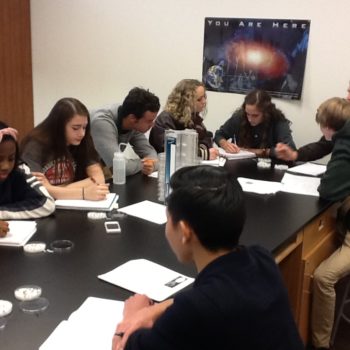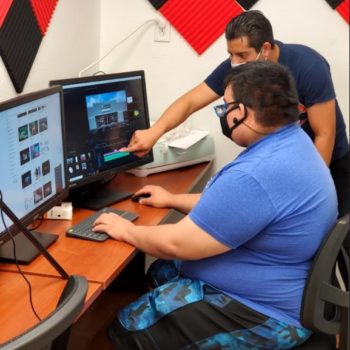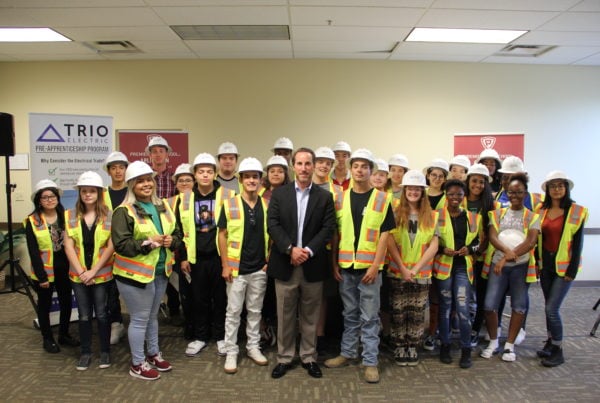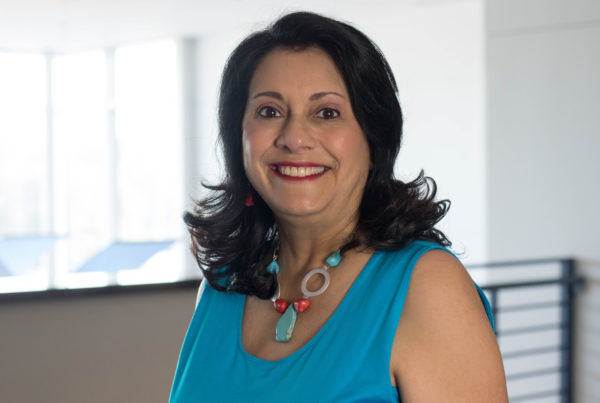High school teacher Jason Brogden believes teenagers are capable of amazing things in math and science when they have tools that foster creativity and when grades don’t count. Coming up with neat ways to do the first part was easy, but Mr. Brogden had to think differently about how to foster an ungraded learning environment where the students work without pressure.
His solution? He established the Lynx Academy science and math fellowship at Founders Classical Academy in Lewisville to give his students a way for them to explore, experiment and discover some new things just because they were curious. Grades still count in class, but Lynx is more about doing things for the fun of it.
“Often high school science is reduced in complexity and beauty. There is little time to explore the interplay between science and the humanities. Discoveries don’t happen in a void, but through dialogue and the connecting of ideas. That is the goal of the Lynx Academy, to enliven science and math for students by giving students field experience and progress in research,” said Mr. Brogden.
Every year, 20 juniors and seniors at the school have the opportunity to apply for the Lynx fellowship, an exclusive gateway into this world of discovery. Mr. Brogden tries to limit the group to a number of self-motivated students who are capable of pursuing their questions on a deeper level. But once they get admitted they often struggle to land on that one idea they can spend the year unpacking.
“Kids ask me ‘what should we do?’ and I ask them ‘What do you want to do?’ That always freaks them out. It is not creative chaos because when you have a student who is well trained, they have a lot of stuff in their head, you just provide the parameters. Once they are set up right, you get out of the way,” said Mr. Brogden.
Mr. Jason Caros, the headmaster at Founders Classical Academy of Lewisville, believes the fellowship helps students see how the humanities and sciences are interconnected.
“Mathematics and the natural sciences are beautiful and should be studied for their own sakes, not merely for their practical applications or vocational purposes. To this end, Lynx helps students to appreciate and understand the natural world in the context of the humanities. It helps them better understand what it means to be human, to understand the complex world around them and to make their way in the world in a good and beautiful way. The Lynx fellowship provides students with an experience which is classical in the truest sense,” said Mr. Caros.
Many of the students intend to pursue a career in math or science. The Lynx fellowship is focused on giving them guided experience. Twice a month, professionals and faculty at the school or local colleges mentor students, serving as a sounding board for their projects.
One of the fellowship’s mentors, Neil Reid of Neil Reid & Associates, leads a math and engineering group through Lynx.
“These students arrive with a strong interest in math or science. My role is to take them deeper through real world examples such as our robotics project, when we visited the F-35 stealth combat jet factory at Lockheed, or heard my former manager from NASA address them on projects he and I worked on,” said Mr. Reid.
They also have the opportunity to hear from experts more formally through a monthly colloquium. Encouraging students to explore what areas of science and math most interest them, students participate in frequent field trips and explore a topic through a project, paper or research of their choice.
The Lynx Academy is modeled after one of the first and oldest professional science association the Accademia dei Lincei (Academy of the Lynxes) founded in 1603 by Federico Cesi. This connection to history is important to Mr. Brogden as it serves to remind the fellows of the connection between the disciplines.
“According to the history of science, one way to become a good scientist is to memorize symphonies. Galileo didn’t have a stopwatch, so he learned to measure time by humming chords. Darwin was classically trained, loved the Tempest and hated Latin. His drawings are amazing, everyone forgets he was an artist. The way you become a good scientist is by being a good artist,” said Brogden.
Now in its second year, the Lynx Academy is seeking to form more partnerships and encourage student summer internships. The fellowship’s five alumni are are currently pursuing careers in medicine, chemistry, dentistry, computer coding and engineering.




